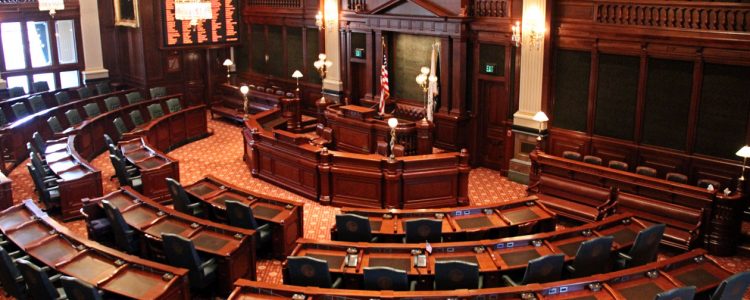
Below is a testimony delivered by our executive director, Mary Kate Knorr, when she testified before the House Human Services Committee on the Equal Rights Amendment.
Proponents of the equal rights amendment often refer to its connection to abortion as a myth. It is not a myth. Rather, it is a well-established fact that was addressed by Henry Hyde in his testimony before Congress in 1983. And in his testimony, Hyde reminded us that the life of the law has not been logic. It has been experience. Law is often interpreted with the intent of those who wrote and adopted it in mind. Experience supports our argument that the ERA is connected to the expansion of abortion.
In 1983, proponents of the ERA attempted to resubmit the amendment after the first attempt expired in 1982. The attempt failed because sponsors refused to change the amendment so as to make it “abortion neutral.” This rejection of abortion neutral language will be perceived in future court decisions as an intent to affect abortion legislation through the passage of the ERA.
As this pertains to Illinois, arguments have been made that the ERA would have no impact on this area of state policy, given that HB40 already funds abortions using state dollars. This is obviously false, as the ERA would prevent state legislators from reconsidering this policy.
Hyde pointed out in his statements before Congress that the pro abortion movement clearly identified the ERA as an important tool in expanding abortion rights in cases in the late 70s and early 80s.
In 1978 case Hawaii Right to Life v. Chang, the ACLU argued that the state of Hawaii’s ERA secured abortion funding because “abortion is a medical procedure performed only for women. Withdrawing funding for abortions while continuing to reimburse other medical procedures sought from both sexes or only by men would be tantamount to a denial of equal rights on account of sex.”
Similar arguments were made in the 1980 case Moe v. King, also by the ACLU, which is a major proponent of the ERA, and in the 1983 case of Fischer, Planned Parenthood, and others v. Department of Public Affairs, by the American Civil Liberties Foundation of Pennsylvania.
In 1986, the Connecticut Superior Court ruled that the state’s ERA promised taxpayer funding for abortion services, stating that “since only women become pregnant, discrimination against pregnancy by not funding abortions… is sex-oriented discrimination… The court concludes that the regulation that restricts the funding for abortions… violates Connecticut’s Equal Rights Amendment.”
And in 1998, New Mexico’s Supreme Court unanimously ruled that under the state’s ERA, the denial of taxpayer funds for abortions was considered “sex discrimination.” As a result, state Medicaid now funds abortion services in the state of New Mexico.
Statements by legal scholars and pro-abortion organizations have supported the fact that the ERA would serve as an important tool for expanding abortion access.
Rutgers law professor and ERA proponent Anne Freedman testified before the Senate Judiciary Subcommittee on the impact the ERA would have on abortion in 1984, saying that “to treat people differently on account of characteristics unique to one sex is to treat them differently on account of their sex.”
Yale Law Professor and ERA proponent Thomas Emerson testified in the same hearing, saying that the ERA would “have an important effect in strengthening abortion rights in America.”
In addition to these statements, pro-abortion groups such as the ACLU, Planned Parenthood, NARAL, the Center for Reproductive Law and Policy, and the NOW Legal Defense and Education Fund have all submitted legal briefs that clarify the ERA’s importance to expanding abortion rights.
It is clear based on these past statements and testimonies by pro-abortion ERA proponents, as well as ERA proponents’ resistance to abortion-neutralizing changes to the ERA, that the expansion of abortion access and the elimination of abortion restrictions is a definitive priority of the ERA. We urge you to take this threat to abortion restrictions very seriously.
